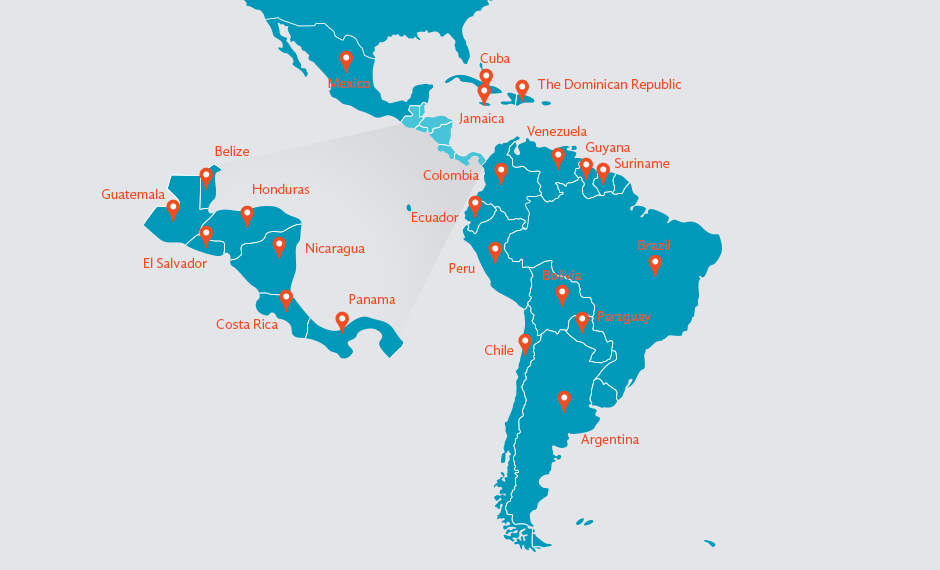Key Results & Achievements
Work towards the development and evaluation of new Zika diagnostic tests (antibody and NAT) and tools for the diagnosis, surveillance and research on ZIKV was carried out over the four-year period.
“We need better diagnostics to accurately detect the people who are truly infected and to be able to understand the risk of complications as well as to manage the patient and monitor them if they are pregnant to know if the baby is safe.”
Prof. Rosanna Peeling, London School of Hygiene and Tropical Medicine
Development of a biobank to facilitate test development, evaluation and for research
Work package 5 established a bio bank and network of sites across Africa, Asia and Latin America for the validation and evaluation of Zika diagnostic tests. This work resulted in harmonized bio-banking procedures and a clinical trial protocol for use in facilitating test development, evaluation and research studies. Standard Operating Procedures on specimen collection, bio banking and evaluations were disseminated to achieve this work.
In close collaboration with the Swiss Tropical and Public Health Institute from WP3, a repository/biobank of Zika-positive clinical samples from ill, returning European travelers was established. These samples can be used as positive controls for evaluating new and/or upcoming diagnostic test assays. In addition, a repository/biobank of Zika-negative, well characterized, clinical samples, was established. These can be used as negative controls for evaluating new and upcoming diagnostic test assays.
This ZikaPLAN network of sites across Africa, Asia, Latin America and Europe is now being employed for the development and evaluation of SARS-CoV-2 tests to respond to the COVID-19 pandemic.
Evaluation of analytical and clinical performance of novel tests
Thanks to the extensive network and harmonization of bio-banking procedures and clinical trial protocols, UNICEF contracted LSHTM to use the WP5 Standard Operating Procedures on specimen collection, bio banking and evaluations to assess Zika and multiplex arbovirus tests for UNICEF procurement. Members of the work package in Senegal, Cuba and in Colombia were among the six sites that participated in the UNICEF evaluation, coordinated by LSHTM. This work resulted in the approval of 3 Zika tests for UNICEF procurement.
Two prototype tests developed by the Mérieux Foundation were submitted for assessment: an antigen test for the detection of the Zika virus and a serological test for the detection of immunoglobulin M (IgM) and immuno-globulin G (IgG), which are antibodies produced as part of the patient’s immune response against the virus. The prototypes were evaluated in Lyon at the Mérieux Foundation and at the Institut Pasteur of Dakar.
The prototype of the antigen test successfully detected virus strains and the performance of the serological test was superior to that of both the CE marked, rapid tests currently on the market and also to the ELISA tests used in laboratories. These tests could be used as companion tests before and after immunization campaigns.
Two research scientists and two quality specialists from the Institut Pasteur of Dakar were trained by the Mérieux Foundation in the development of the prototypes as well as in production standards and regulations.

RELDA: Arbovirus Laboratory Network in Latin America
Participating Organisations
Group leader: Prof. Rosanna Peeling; Group coordinator: Debi Boeras PhD, London School of Hygiene & Tropical Medicine (LSHTM)
- Annelies Wilder-Smith, Umea University, Sweden
- Duane Gubler, National University of Singapore, Singapore
- Amadou Sall, Institut Pasteur de Dakar, Senegal
- Maria Guzman, Luis Pelegrino, Instituto Medicina Tropical Pedro Kouri, Cuba
- Andrew Falconer, LSHTM, UK and Universidad del Norte, Colombia
- Sébastien Quesney, Mérieux Foundation, France
- Kevin Arien, Institute of Tropical Medicine, Belgium
- Andreas Neumayr, Swiss Tropical and Public Health Institute, Switzerland
- Aravinda de Silva, University of North Carolina, USA